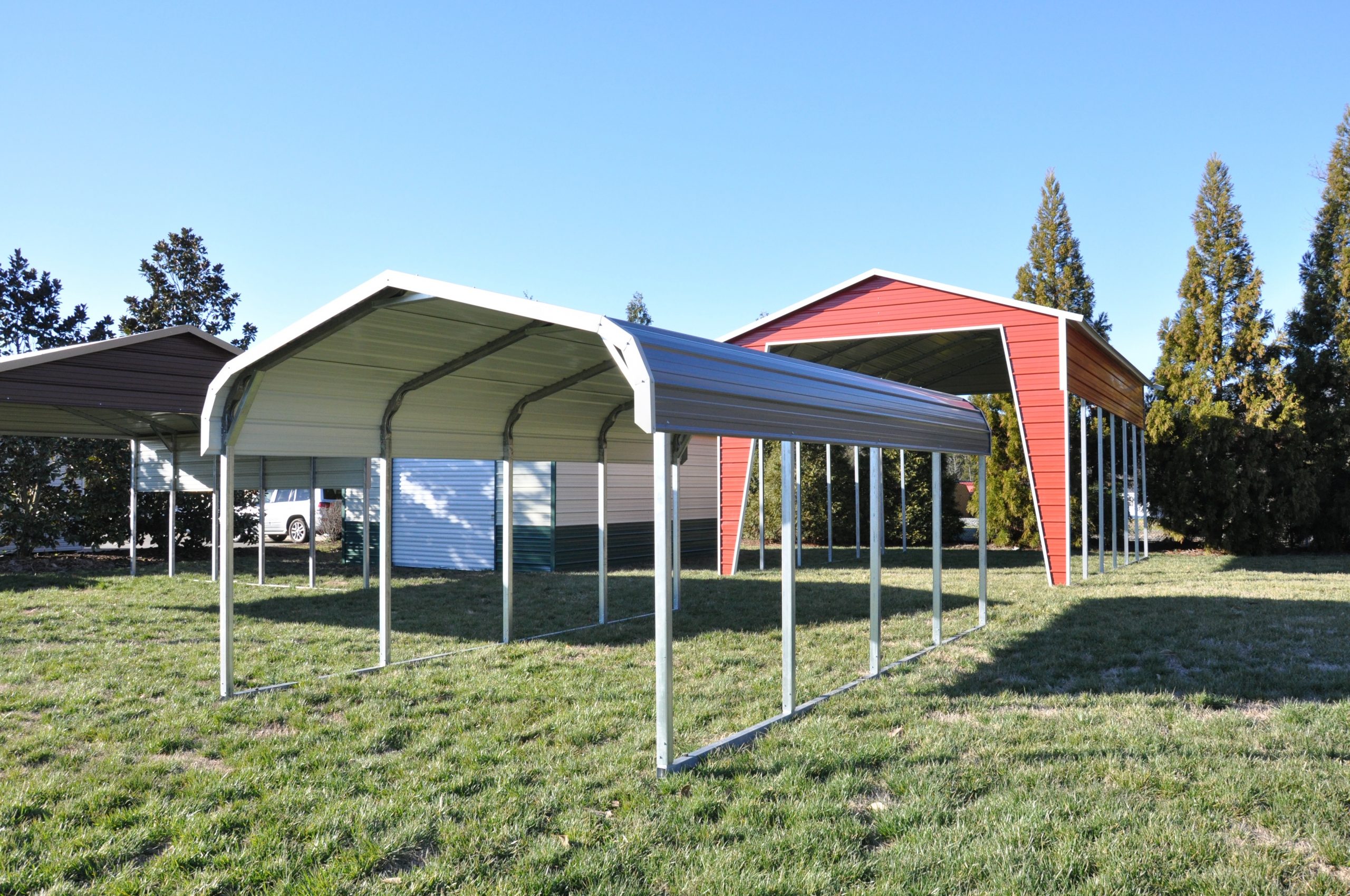Seasonal Changes: Preparing Your RV Cover for Different Weather
Owning an RV is a fantastic way to explore new places and enjoy the freedom of the open road. However, proper care and maintenance of your RV cover are essential to keep your RV in top condition between adventures. As the seasons change, so do the weather conditions, which can significantly impact the effectiveness and longevity of your RV cover.
Let’s delve into how different weather conditions affect RV covers and what you can do to ensure your cover provides the best protection throughout the year.
What Materials Are Best For RV Covers In Various Seasonal Weather Conditions?
Choosing the right material for your RV cover is crucial to ensure it performs well throughout the year. Different seasons pose unique challenges, and the material of your cover can make all the difference.
For Winter Conditions
- Heavy-Duty Polyester with Waterproof Coating: Polyester is known for its durability and resistance to harsh conditions. When treated with a waterproof coating, it effectively shields your RV from snow and ice. This type of cover prevents moisture from penetrating and causing damage, which is essential during winter.
- Polypropylene: Another excellent choice for winter, polypropylene is lightweight yet robust. It provides strong protection against snow and ice while being resistant to water. This material is also less likely to become brittle in freezing temperatures, ensuring your cover stays effective throughout the winter.
For Summer Conditions
- Woven Polyester: During warmer months, woven polyester is an ideal choice. This material is not only lightweight but also offers excellent breathability. It helps to prevent heat buildup and keeps your RV cooler, which is important for avoiding damage from intense sun exposure.
- UV-Resistant Fabric: Covers made from UV-resistant fabric are crucial for summer protection. They are designed to block harmful UV rays that can cause fading and deterioration of your RV’s exterior. By reflecting UV rays, these covers help maintain your RV’s appearance and integrity.
- Ventilation Panels: Covers with built-in ventilation panels are particularly beneficial in the summer. These panels allow for airflow, reducing the risk of moisture accumulation, which can lead to mold and mildew growth. Proper ventilation is key to maintaining a dry and clean environment under the cover.
Selecting the right material for your RV cover based on the season will help extend its lifespan and provide the best protection for your vehicle. Whether it’s battling winter’s cold or summer’s heat, having the appropriate cover ensures your RV stays in excellent condition all year round.
How Does Winter Weather Affect The Durability Of RV Covers?
Winter weather can present several challenges for RV covers, potentially affecting their durability and effectiveness. Understanding these impacts and taking proactive measures can help preserve your cover and ensure it protects your RV throughout the season.
Key Effects of Winter Weather on RV Covers
- Snow and Ice Accumulation: One of the primary concerns during winter is the accumulation of snow and ice on the RV cover. This buildup adds significant weight, damaging the cover’s material and stitching. Over time, this extra weight can cause tears, sagging, or even complete cover failure.
- Brittleness from Freezing Temperatures: Freezing temperatures can cause some materials, especially those not designed for winter conditions, to become brittle. Brittle materials are more prone to cracking or splitting, reducing the cover’s ability to shield your RV effectively.
Protection Tips for Winter Weather
- Secure the Cover Properly: To prevent your cover from being displaced by strong winter winds, ensure it is tightly secured. Use straps, buckles, or tie-downs to keep the cover in place, minimizing the risk of wind damage.
- Reinforced Seams and Edges: Opt for a cover with reinforced seams and edges. These features enhance durability and help withstand the additional stress caused by snow and ice accumulation.
- Regular Maintenance: Check and remove snow and ice buildup from the cover regularly to prevent excessive weight and potential damage. Gently brush off the snow and use a soft broom or a similar tool to avoid damaging the cover.
- Winter-Specific Covers: Consider using a cover specifically designed for winter conditions. These covers often include built-in features like additional straps and cinches that help secure the cover tightly against the RV. They may also offer enhanced insulation and resistance to freezing temperatures.
By understanding the effects of winter weather on RV covers and following these protective measures, you can ensure your cover remains effective and durable throughout the harsh winter months.
Can Summer Heat Damage RV Covers, And How Can You Protect Them?
The summer sun can be just as damaging to RV covers as winter. Prolonged exposure to intense heat and UV rays can cause the cover material to weaken, fade, and deteriorate over time. UV damage can lead to reduced cover effectiveness, making it less capable of protecting your RV.
To mitigate summer heat damage, opt for RV covers with UV-resistant coatings. These coatings help block harmful rays and prevent them from breaking down the cover material. Additionally, a cover with a reflective surface can help reduce heat buildup and minimize the impact of the sun’s rays.
It’s also beneficial to clean your RV cover regularly during summer. Dust and debris can accumulate and contribute to wear and tear. A gentle wash with mild soap and water, followed by thorough drying, can help maintain the cover’s integrity and extend its lifespan.
Are Waterproof RV Covers Effective In All Seasons?
Waterproof RV covers are designed to keep your RV dry and protected from moisture. While they are highly effective at preventing water from entering and causing damage, they are only sometimes a one-size-fits-all solution for every season.
In winter, waterproof covers are essential for protecting against snow and ice. They prevent moisture from penetrating the cover and reaching your RV. However, in summer, more than a waterproof cover is required. While it will still protect against rain, it may not offer adequate breathability, crucial for preventing mold and mildew growth in the warmer months.
To ensure year-round protection, look for covers that combine waterproofing and breathability. This way, you can enjoy the benefits of a waterproof cover while addressing the need for ventilation to keep your RV in good condition throughout all seasons.
By choosing the right materials, understanding the impacts of seasonal weather, and maintaining your RV cover properly, you can ensure that your RV stays protected and in excellent condition no matter what the weather brings.
Preparing your RV cover for different weather conditions not only extends the life of your cover but also safeguards your RV investment, allowing you to enjoy your travels with peace of mind.
Why Better Built Structures is Your Best Choice for RV Covers
At Better Built Structures, we understand that protecting your RV from the elements is crucial for maintaining its value and functionality. That’s why we offer a comprehensive range of high-quality RV covers designed to meet the needs of every season.
Our RV covers are crafted from durable, weather-resistant materials that ensure long-lasting protection. Whether you’re facing harsh winter conditions or intense summer heat, our covers provide superior shielding against snow, ice, UV rays, and rain. Our designs prioritize breathability and UV resistance so your RV stays dry and cool, reducing the risk of mold and damage.
Moreover, our covers are tailored to fit various RV sizes and models, ensuring a snug, secure fit that won’t blow off in strong winds. Our commitment to quality and customer satisfaction means that when you choose Better Built Structures, you invest in a product that delivers reliable performance and peace of mind for all your travel adventures. Trust us to keep your RV pristine, no matter the season.
Frequently Asked Questions About RV Covers
How much should I budget for a high-quality RV cover?
Investing in a quality RV cover is essential for ensuring the longevity and protection of your vehicle. Typically, you can expect to spend between $150 to $500 on a good RV cover, depending on the size, material, and features. Basic models start around $150, while premium covers with advanced features and custom fits can cost up to $500 or more. At Better Built Structures, we offer a range of options to fit various budgets without compromising on quality.
How often should I replace my RV cover?
The lifespan of your RV cover largely depends on the material and the weather conditions it’s exposed to. A well-maintained RV cover can last between 3 to 5 years. If you notice signs of wear and tear, such as fading, tears, or reduced effectiveness, it’s time to consider replacing your cover. Regular maintenance, including cleaning and proper storage, can help extend its life.
Can I use an RV cover during all seasons?
Yes, a high-quality RV cover protects your vehicle throughout the year. Our covers at Better Built Structures are equipped to handle various weather conditions, from heavy snow and ice in the winter to intense UV rays and heat in the summer. Choose a cover that combines waterproofing with breathability for the best results to address seasonal changes effectively.
Ready to Protect Your RV?
Choosing the right RV cover is crucial for safeguarding your vehicle and extending its lifespan. At Better Built Structures, we provide durable, high-quality covers designed to withstand the challenges of any season. Contact us today to find the perfect cover for your RV and ensure it remains in top condition for years to come.
For more information or to get a quote, visit our website or call us directly. Let us help you protect your RV and prepare for your next adventure!






